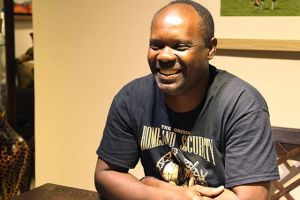Government of Macao publishes personal assets of senior officials
Updated: 2013-10-21 00:50
By XU WEI (China Daily)
|
|||||||||||
Authorities at the Macao Special Administrative Region for the first time declared the personal assets of officials and other high-ranking public servants on Saturday in a move to further intensify its anti-graft efforts.
Personal assets of more than 400 high-ranking public servants with the SAR, including Chief Executive Chui Sai-on, members of the Legislative Assembly, administrative office directors, chiefs and deputy chiefs with government departments and public enterprises, were made public on the website of the Court of Final Appeal of Macao.
The move came after a proposal on the declaration of public assets of officials was passed by the SAR's Legislative Assembly in April last year.
It was also part of Chui Sai-on's effort to live up his promise during his inauguration as the region's chief executive in 2009 to build "a government under the sunshine" and promote a clean government.
Chui declared that he owns two real estate properties in Macao and one on the Chinese mainland, on which he owned 50 percent of the property rights. He also owns three parking spaces and is a sponsor or board member at eight other entities, including three universities.
Ho Iat-seng, who was elected as chairman of the Legislative Assembly on Wednesday, declared that he owns three apartments in Hong Kong, Macao and the United States and one real estate property in Beijing.
Of the 10 leading officials with the SAR, Choi Lai-hang, who is director general of the Macao Customs, stood out as he declared that he owns neither real estate properties nor shares at enterprises or stocks. He only occupies positions at a theater club and an association for fellow townsmen.
Meanwhile, Leong An-kei, a member of the region's Legislative Assembly, also stood out as she owns 52 real estate properties, including 38 apartments and 11 parking spaces for rent.
The SAR government of Macao followed the steps of Taiwan and Hong Kong in requiring the declaration of personal assets among officials. Taiwan introduced the declaration of officials' assets in 1993, while Hong Kong's policy dates back to the 1970s.
Lou Shenghua, an expert on public administration with Macao Polytechnic Institute, said compared with similar practices in Hong Kong and Taiwan, the disclosure of officials' assets this time needs to be more detailed in order to enable further supervision.
"The authority published the number of assets that officials own, but without concrete addresses. In Hong Kong, they publish the addresses, and that's how they found cases of illegal construction by officials," he said in an e-mail interview.
Yu Wing-wat, a researcher on politics and public administration in Macao at the University of Macau, told Southern Metropolis Daily that the SAR government overcame many hurdles in publishing the assets of high-ranking officials.
Many of the officials with the SAR government have business backgrounds and they did not intend to publish their assets when they took up politics, which makes the process difficult, he said.
However, Yu said Macao was able to make progress in asset declaration step by step, and that is why the SAR's declaration of officials' assets could be of more value.
The move by the SAR government of Macao has fueled calls for similar anti-graft measures on the Chinese mainland, as a nationwide policy within the Communist Party of China and the government is yet to be carried out.
"As we are focusing our efforts on publishing the government's spending on public banquets, vehicles and overseas trips, the Macao SAR authorities are publishing the assets of high-ranking officials," said Han Zhipeng, a member of the Guangzhou Committee of the People's Political Consultative Conference. "Can our efforts to publish officials' assets start from revealing their real estate property information?"
Related Stories
Officials post their financial information online 2012-09-27 02:45
Officials disclose assets to each other 2012-07-18 07:39
Military officers to report personal assets 2012-06-21 11:18
Rich get richer, choosier 2012-03-28 08:10
Province to probe officials' assests declarations 2011-08-19 15:29
Today's Top News
As China's economy grows, so does reform call
Expanded property tax trials predicted
Australian authorities fear worsening wildfires
Suicide bomber kills 16 in Somali cafe attack
Italy court sets 2-year Berlusconi political ban
China, EU to hold investment talks
Larger US budget war rages on
Growth 'paves way for reforms'
Hot Topics
Lunar probe , China growth forecasts, Emission rules get tougher, China seen through 'colored lens', International board,
Editor's Picks

|

|

|

|

|

|





